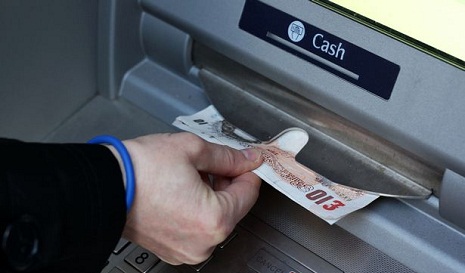It was meant to help people meet their loan or credit card repayments if they lost their job through illness or redundancy. The problem was that big profit margins on sales encouraged banks to sell PPI at over-inflated prices to people who did not want it or need it – and in many cases couldn`t even use it.
Britain’s banks have paid out billions in PPI compensation payments , making this the UK’s largest ever mis-selling scandal.
But while PPI was more useless than most, there are a string of products people are paying for that are not quite as good as they may first seem.
Here we look at some of the other products you can probably afford to ditch.
Packaged current accounts

Packaged accounts are current accounts which charge a fee in exchange for a range of additional benefits.
Typically, these take the form of breakdown cover, mobile phone cover and travel insurance.
While these perks may sound attractive, the cost could range up to £25 a month. That adds up to a hefty £300 a year. Worse, they`re exacylt the sort of benefit you can get thrown in, free, with a top current account anyway.
“Packaged accounts are huge money-spinners for the banks, yet are cleverly marketed as offering value for money,” said Damien Fahy, finance expert from MoneyToTheMasses.com. “For the majority of people, packaged accounts are a waste of cash, as they won’t be able to use all the benefits they are paying for.”
David Black, money expert at DJB Research, added: “Before signing up, work out if you are going to be better off opting for a free current account and shopping around for products such as travel insurance separately.”
Store cards

The offer of an introductory discount on your purchases if you sign up to a store card may sound very appealing, but you are likely to be better off not owning one of these pieces of plastic.
“Store cards are a hideously expensive means of obtaining credit, and often come with annual interest rates as high as 30%,” warned Fahy. “These cards are very profitable for the banks and retailers, but in general are a very bad deal for consumers.”
In addition, they are often sold by untrained staff.
“If you only make the minimum repayments, these cards can become an albatross around your neck,” warned Andrew Hagger, finance expert from MoneyComms. “If you’re not careful, you could easily get into a spiral of debt. You’re better off with a ‘best buy’ credit card.”
ID theft cover

Many people pay as much as £70 a year for “identity theft insurance”, a type of cover supposedly designed to pay out if fraudsters steal their identity.
But not only is this insurance expensive, it is also not worth forking out for.
“Policies often offer large levels of cover for losses incurred as a result of ID theft, yet under current banking rules, you will only be liable for up to £50 of your losses – as long as the fraud didn’t occur as a result of your negligence,” said Fahy. “This is often less than the excess on the ID theft insurance policies.”
At the same time, this cover can often be full of hidden exclusions, so unless you read the small print, you may not be covered for the things you think you are.
“In addition, we have already had mis-selling scandals for ID theft insurance,” said Fahy. “I’d recommend steering clear of this cover.”
Extended warranties

Other products you could consider ditching:
Mobile phone insurance – these policies are notorious for their exclusions which can make successful claims almost impossible.
Wedding insurance – this product is sold through fear of your big day going wrong, but it’s an unnecessary expense. If you pay for everything using a credit card you will be covered under the Consumer Credit Act 1974 if a supplier – or the venue – cancels.
Football (or charity) credit cards – these cards are promoted on the back of your favourite football club (or charity) getting a donation when you take out – or use – the card. But they often offer terrible rates, and the reward paid to the club (or charity) can be paltry. You are likely to be better off going to see a football match (or donating to the charity directly), and taking out a market-leading credit card elsewhere.
Debt management plans – if you are struggling to make ends meet, you may be tempted to spend money on a debt management plan. But there is no need to pay for debt help, as free help and advice is available from organisations such as Nationaldebtline.org, Stepchange.org and Citizensadvice.org.uk . Worse, some of the firms have been taking as much as 90% of the money you pay them and keeping it – passing on just 10p in every pound to the people you owe money to.
More about:
















































